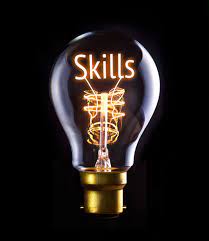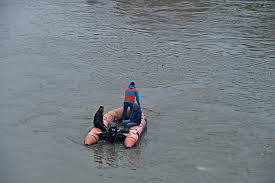
The Essential Toolkit: Mastering Soft Skills for a Thriving Future
Land Your Dream Job: Master the Interview with These Proven Techniques!
By: Javid Amin
The landscape of education is undergoing a metamorphosis. Gone are the days when rote memorization and standardized tests held the sole key to success. Today, in a world characterized by constant flux and technological disruption, a new breed of skills is paramount for students: soft skills. These intangible assets, encompassing communication, collaboration, critical thinking, and adaptability, are the cornerstones of navigating an uncertain future and achieving personal and professional fulfillment.
This article delves deeper into six crucial soft skills that every student in the 21st century should strive to master. We’ll explore the “why” behind each skill, delve into practical strategies for development, and illustrate how these skills translate into real-world success stories. Let’s embark on this journey of empowerment, equipping ourselves with the essential toolkit for a thriving future.
The Agile Mind: Embracing Adaptability and Creativity
Imagine this: a student diligently memorizes a specific set of coding languages, only to find them outdated by the time they enter the workforce. This scenario exemplifies the rapid pace of change in today’s world. The ability to adapt to new situations, embrace novel approaches, and think creatively is an invaluable skill for students.
Here’s how students can cultivate adaptability and creativity:
- Project-Based Learning: Schools can integrate project-based learning into the curriculum, where students tackle real-world problems and experiment with various solutions.
- Embrace Open-Ended Questions: Instead of rote memorization, encourage critical thinking through open-ended questions that require students to analyze, synthesize, and generate creative solutions.
- The Power of “Yet”: Incorporate a growth mindset where challenges are seen as opportunities to learn and grow. Reframe failures as “not yet” moments, fostering resilience and a willingness to adapt strategies.
Real-World Example: Sarah, a high school student, participated in a robotics club where her team designed and built robots to compete in national championships. The competition rules changed significantly just weeks before the event, requiring Sarah’s team to adapt their robot design and programming. Through collaboration and creative problem-solving, they were able to modify their robot successfully and secured a top position in the competition. This experience honed Sarah’s adaptability and critical thinking skills, preparing her for future challenges in academics and beyond.
The Symphony of Success: Mastering Collaboration
The solitary scholar stereotype no longer defines academic excellence. In today’s collaborative workplaces, the ability to work effectively with others is crucial. Students need to hone their communication skills, learn to value diverse perspectives, and navigate team dynamics.
Here’s how students can develop strong collaboration skills:
- Group Projects & Activities: Regularly incorporate group projects and activities into the curriculum, allowing students to practice teamwork, communication, and conflict resolution.
- Peer-to-Peer Learning: Encourage collaborative learning environments where students can learn from and teach each other, fostering a sense of shared responsibility and collective success.
- Role-Playing Exercises: Simulate real-world scenarios where students can practice teamwork, negotiation, and leadership skills in a safe environment.
Real-World Example: David, a college student, was part of a diverse student team working on a semester-long project on renewable energy solutions. Initially, there were disagreements about project direction. However, through effective communication and active listening, David and his team were able to bridge their differences, leverage each other’s strengths, and ultimately deliver a well-rounded presentation that impressed the professor.
The Power of Expression: Mastering Communication Skills
Communication is the lifeblood of any successful endeavor. Students need to be able to articulate their ideas clearly, both verbally and in writing, tailor their message to the audience, and actively listen to understand diverse viewpoints.
Here’s how students can develop strong communication skills:
- Debate Teams & Public Speaking Opportunities: Encourage participation in debate teams or public speaking opportunities, which provide platforms for students to refine their communication skills and develop confidence in expressing themselves.
- Writing Across the Curriculum: Integrate writing assignments into various subjects, allowing students to practice different writing styles and hone their ability to express complex ideas clearly.
- Technology as a Tool: Utilize technology to explore different communication methods, such as creating multimedia presentations or engaging in online discussions with global peers.
Real-World Example: Emily, a recent graduate, landed a coveted marketing position at a multinational company. Throughout her college years, she actively participated in debate teams, honing her ability to present arguments persuasively and respond effectively to counterpoints. These experiences proved invaluable in her first job, where she had to communicate complex marketing strategies to diverse stakeholders, including international clients.
The Thinking Detective: Cultivating Critical Thinking and Problem-Solving
In a world brimming with information, the ability to discern fact from fiction, analyze data effectively, and approach problems with a critical lens is paramount. Critical thinking empowers students to become independent learners, capable of tackling complex challenges and generating innovative solutions.
Here are some strategies to nurture critical thinking skills:
- Inquiry-Based Learning: Schools can adopt inquiry-based learning models, where students are encouraged to ask questions, research independently, and draw their own conclusions based on evidence.
- Socratic Seminars: Facilitate Socratic seminars, where students engage in open-ended discussions, exploring various perspectives and challenging assumptions.
- Coding & Computational Thinking: Introduce coding and computational thinking into the curriculum. These activities hone problem-solving skills and teach students to break down complex issues into logical steps.
Real-World Example: Michael, a high school student, participated in a science fair project investigating the impact of different fertilizers on plant growth. He meticulously designed his experiment, controlled variables, and analyzed the data to draw evidence-based conclusions. This experience not only deepened his understanding of scientific concepts but also equipped him with critical thinking skills that will benefit him in future academic and professional pursuits.
Building Bridges: Embracing Cultural Understanding
Our world is a tapestry woven with diverse cultures, customs, and traditions. Developing an appreciation for these differences is crucial for fostering empathy, building strong relationships, and thriving in a globalized world.
Here’s how students can cultivate cultural understanding:
- Global Collaboration Projects: Organize collaborative projects with students from different countries, allowing them to work together on a shared goal while appreciating diverse perspectives and communication styles.
- International Exchange Programs: Encourage participation in international exchange programs, where students can immerse themselves in new cultures, challenge their own biases, and develop a broader worldview.
- Multicultural Literature & Film: Integrate multicultural literature and films into the curriculum, exposing students to diverse narratives and fostering empathy for experiences different from their own.
Real-World Example: Anya, a university student, participated in a virtual exchange program with students in South Korea. Through online discussions and collaborative projects, she learned about Korean culture, traditions, and educational systems. This experience broadened her horizons, challenged her assumptions, and equipped her with the skills to navigate a multicultural workplace after graduation.
The Lifelong Learner: Embracing Upskilling and Technological Fluency
Technology is transforming every facet of our lives. The ability to adapt to these changes, learn new skills continuously, and leverage technology effectively is crucial for success in the 21st century.
Here’s how students can become lifelong learners and technology enthusiasts:
- Makerspaces & Coding Clubs: Schools can create makerspaces and coding clubs where students can experiment with new technologies, build prototypes, and develop digital fluency.
- Online Learning Platforms: Encourage exploration of online learning platforms offering courses in various fields, fostering a spirit of continuous learning and knowledge acquisition.
- Technology Integration Across Curriculum: Integrate technology seamlessly into the curriculum, allowing students to utilize digital tools for research, communication, and creative expression.
Real-World Example: Daniel, a young professional, started his career in graphic design. Recognizing the growing importance of digital marketing, he continuously upskilled himself through online courses and workshops. He learned about SEO optimization, social media marketing, and content creation tools, expanding his skillset and securing a promotion to lead the company’s digital marketing team.
Conclusion: Empowering the Future By mastering these crucial soft skills, students transform into well-rounded individuals equipped to navigate the complexities of the 21st century. They become not just passive observers but active participants in shaping a brighter future. The journey of acquiring these skills is an ongoing process, requiring dedication, perseverance, and a willingness to learn from both successes and failures. This article serves as a compass, guiding educators, parents, and students themselves on this empowering path towards a thriving future.

